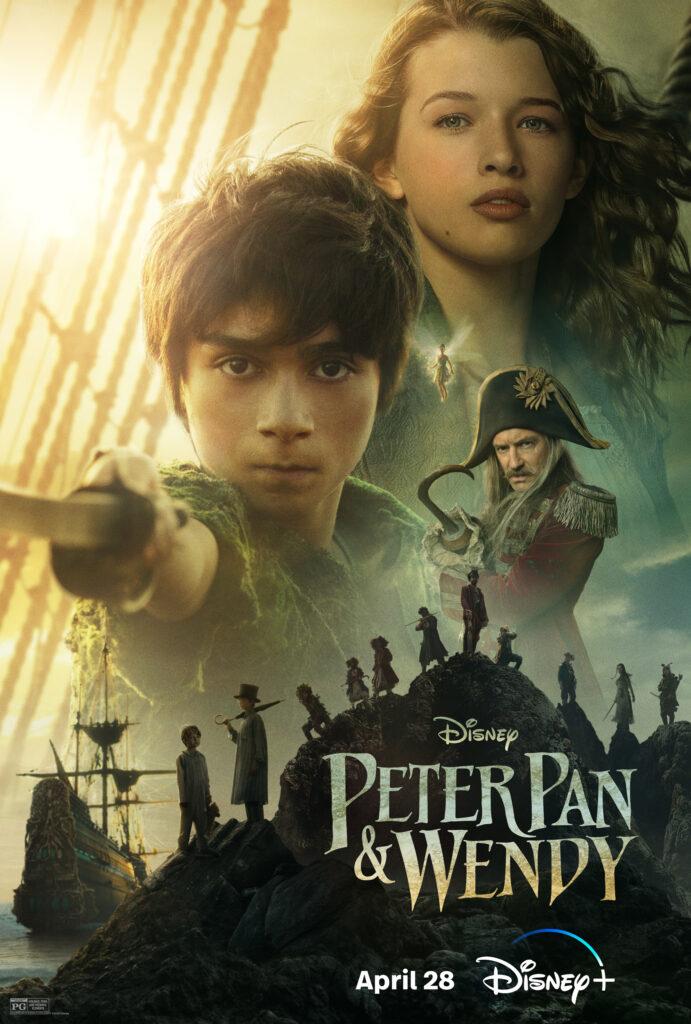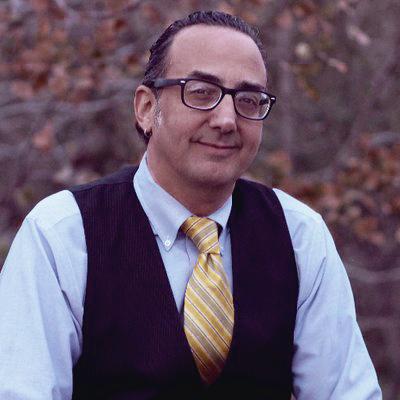Wapanatâhk says Disney and director David Lowery were culturally respectful regarding her portrayal of Tiger Lily
On February 28, 2023, Disney released the trailer for the film, “Peter Pan and Wendy” based on the Peter Pan film from 1953.
In a release, director and co-writer David Lowery said, “In making ‘Peter Pan & Wendy,’ we set out to craft a film that honors both the original J.M. Barrie text and Walt Disney’s animated adaptation; we wanted to invigorate our retelling with emotional sincerity, an open heart, and a grand yearning for adventure. Hundreds of incredible artists spent many years bringing this film to the screen; I’m excited for audiences to see their work, to go on this ride, and to rediscover an evergreen tale from a new perspective.”
Historically, the movie Peter Pan has been a problematic film in terms of Native culture. But Disney is atoning for this past with a culturally respectful adaptation of its Tiger Lily character that is portrayed by Indigenous Cree actress Alyssa Wapanatâhk.
Wapanatâhk says Lowery, as well as the cast and crew were respectful of the indigeneity of Tiger Lily, and Lowery encouraged Wapanatâhk to utilize elements of her Cree background.
According to Disney, the film synopsis as well as the cast includes the following:
“Peter Pan & Wendy” introduces Wendy Darling, a young girl afraid to leave her childhood home behind, who meets Peter Pan, a boy who refuses to grow up. Alongside her brothers and a tiny fairy, Tinker Bell, she travels with Peter to the magical world of Neverland. There, she encounters an evil pirate captain, Captain Hook, and embarks on a thrilling and dangerous adventure that will change her life forever.

The film stars Jude Law (“Fantastic Beasts: The Secrets of Dumbledore”), Alexander Molony (“The Reluctant Landlord”), Ever Anderson (“Resident Evil: The Final Chapter”), Yara Shahidi (“Grown-ish”), Alyssa Wapanatâhk, Joshua Pickering (“A Discovery of Witches”), Jacobi Jupe, Molly Parker (“House of Cards”), Alan Tudyk (“Rogue One: A Star Wars Story”), and Jim Gaffigan (“The Jim Gaffigan Show”). “Peter Pan and Wendy” is directed by David Lowery from a screenplay by David Lowery & Toby Halbrooks (“The Green Knight”) based on the novel by J. M. Barrie and the animated film “Peter Pan.” The producer is Jim Whitaker (“Pete’s Dragon”), with Adam Borba (“A Wrinkle in Time”), Thomas M. Hammel (“Thor: Ragnarok”), and Toby Halbrooks serving as executive producers.
Indigenous respect for Tiger Lily
As previously reported in Native Viewpoint, and according to Disney, the production teams “Authentically and respectfully representing Indigenous communities was a top priority for the Peter Pan & Wendy filmmakers. Two of the film’s Native consultants were Dawn Jackson (Saginaw Chippewa) and Dr. Kevin Lewis ( Minisitkwan Lake Cree Nation) who contributed from the development stage all the way through to principal photography and post-production.
See related story: Magical ‘Peter Pan and Wendy’ film trailer features culturally-respectful Tiger Lily
Speaking with Alyssa Wapanatâhk
I spoke with Alyssa Wapanatâhk about her portrayal of Tiger Lily and addressed such topics as bringing in the indigeneity of the character, Tiger Lily’s tumultuous past, and looking toward the future.
Vincent Schilling: So, Alyssa, How does it feel to be playing Tiger Lily in the upcoming movie Peter Pan and Wendy?
Alyssa Wapanatâhk: Even from the beginning—it feels like it was all a dream—mostly because we were waiting for this film to come out. It was like a dream that I have had since I was a little girl—I really didn’t even know it was a dream until I saw it in front of me.
I read that script and I knew it was meant for me. My soul was like, ‘I need this.’ It was a beautiful feeling.’
Vincent Schilling: Awesome. Disney has made efforts to address a problematic history regarding the character Tiger Lily as well as Native American representation. What are your thoughts on that?
Alyssa Wapanatâhk: My thoughts on Disney’s past is that I hope they leave it where it is. The past and I think they will. I watched all the Peter Pan films. There were some films that did not do us justice for sure. When I first read that script, I could see the change. Once I was actually working with production, I noticed it even more, and it got better and better. The first time they told me that there was a cultural consultant team. I thought I need to be part of that team you know, all hands on deck.
Then I was a part of that team and whenever we needed to discuss things, I was there. I really felt like they were trying.
Vincent Schilling: Were the filmmakers receptive to your insights about being culturally appropriate?
Alyssa Wapanatâhk: Yes. And especially David (Lowery, the director.) He was really just genuinely a kind person. Whenever you’re a kind person, you do things that are good for the better good. I think we just need more people like that around.
Vincent Schilling: Things are very exciting for Indigenous characters in today’s film industry. What have your experiences been as a young Indigenous person?
Alyssa Wapanatâhk: Well, it’s crazy because I bet like people think that I’ve never experienced anything in terms of indigenous hardships because I’m 24. But I did. I have faced racism all my life, growing up and just for being who I was. That’s what we had to deal with. Coming from that as a kid and then suddenly finding myself in the film industry, and seeing that there’s all this change happening right at the beginning of my career?
It’s really shocked me honestly, because I think, wow, like this is really happening. This is wild. All of these different films and TV shows are coming out now that are done so well. I’m seeing all these Native producers and Native directors, Native writers, and Native actors and they are all giving us their best work. It’s really good. It’s everything that we’ve always wanted.
Vincent Schilling: So, how did you approach your character?
Alyssa Wapanatâhk: I used a lot of the techniques and what I learned from school. I got to build the character from what I interpreted from the script. That’s what I worked on first—all that text and analyzing everything that’s going on in these scenes and what made her become who she is.
What Tiger Lily has experienced as a person is much different from what I have experienced, even though we’re both Native. That’s what I did first. Later on, I did all of this research. I went into archives to try and find things that were from that day and age—there wasn’t much—but to find something that was close so I could have something to look back at.
Making sure that she was authentic, was the hugest part. I wanted to be authentic.
I think that’s why we brought my Cree background into it. It was actually David’s first idea.
It was random one evening. I received an email from him and he wrote, ‘Hey, I know that you’re Cree. Why don’t you bring your Cree background into this character? I was like, ‘Wow, Yeah, I’m there. That was at the point where I thought, ‘Okay this needs to be done perfectly.’
I had all these people in my corner. I was so lucky because my grandmother grew up Cree and she is a fluent Cree speaker. And my mosom, Fred, he’s an elder back home and a medicine man. I thought, ‘These are the people that I need to consult because they’ve deserved it.’
Vincent Schilling: I’m curious, can you tell me, what did you Alyssa bring to Tiger Lily that may not have been brought with someone else’s portrayal?
Alyssa Wapanatâhk: I think it’s just different for me because where I started out was with prayer. Having that close connection with Creator. I think that’s what I kept with me every single day that I was on set. Even before that, it was starting the day off by praying, and by being there, and really just keeping that connection strong. I knew that If I didn’t have this culture. If we didn’t have these ceremonies, I wouldn’t be here in this position. And I knew that if I just kept that strong, then everything would connect. Everything would fall into place where it’s meant to be.
So I was there on set, I would have my smudge. I would do my character work and all of the work that I had to do in my trailer and I would head out to set. It was easy and it was like the weight was lifted and there was even a spiritual connection between the film and my character.
There’s that other side where it’s not a physical thing. It’s not just the picture that you see in the end. It’s what you are developing with that character. I feel like we had a really personal bond—Tiger Lily and me. I think that was just at the forefront of everything, and that was just one part of it.
Vincent Schilling: Ok, so who is the ultimate Tiger Lily that we’re gonna see?
Alyssa Wapanatâhk: Tiger Lily is a completely badass, warrior woman. She is bold. She’s brave. She’s beautiful. She’s a protector. She loves with all her heart, and I think in every single scene, she’s there just because she loves so much.

Vincent Schilling, Akwesasne Mohawk, is the founder and editor of Native Viewpoint. With nearly 20 years of experience as a Native journalist and former member of the White House Press Pool, Vincent works to uplift underrepresented voices in the world of media and beyond. Follow Vincent on YouTube.com/VinceSchilling, on Twitter at @VinceSchilling or on any other of his social media accounts by clicking on any of the icons below.
Support Native Viewpoint a Native multimedia website, by clicking here.